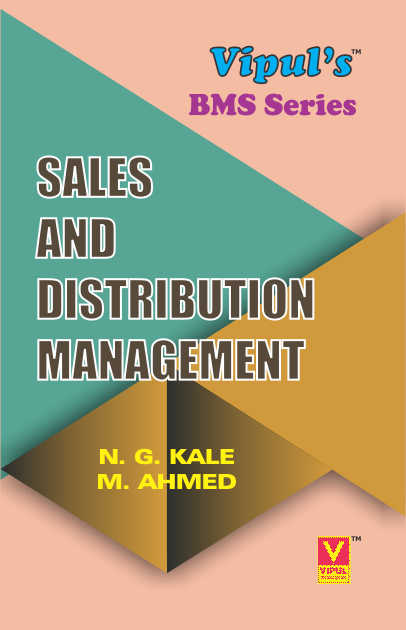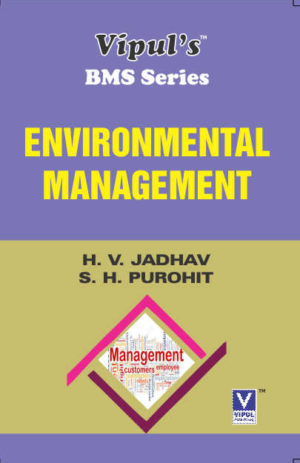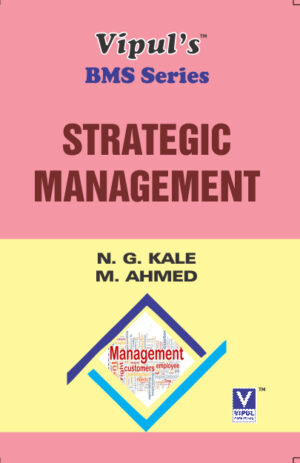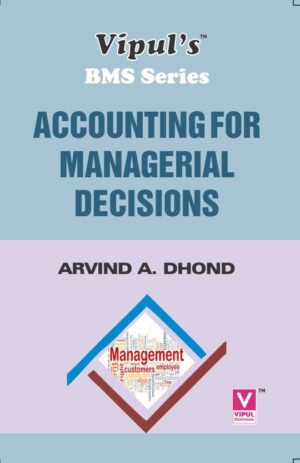Sales and Distribution Management
₹190.00
TYBMS — SEMESTER – V
Author: N. G. Kale
M. Ahmed
FIFTH EDITION 2022
Description
SYLLABUS
(1) Introduction:
- Sales Management: Meaning, Role of Sales Department, Evolution of Sales Management. Interface of Sales with Other Management Functions. Qualities of a Sales Manager. Sales Management: Meaning, Developments in Sales Management-Effectiveness to Efficiency, Multidisciplinary Approach, Internal Marketing, Increased Use of Internet, CRM, Professionalism in Selling. Structure of Sales Organization – Functional, Product Based, Market Based, Territory Based, Combination or Hybrid Structure.
- Distribution Management: Meaning, Importance, Role of Distribution, Role of Intermediaries, Evolution of Distribution Channels.
- Integration of Marketing, Sales and Distribution.
(2) Market Analysis and Selling:
- Market Analysis: Market Analysis and Sales Forecasting, Methods of Sales Forecasting. Types of Sales Quotas – Value Quota, Volume Quota, Activity Quota, Combination Quota. Factors Determining Fixation of Sales Quota. Assigning Territories to Salespeople.
- Selling: Process of Selling, Methods of Closing a Sale, Reasons for Unsuccessful Closing. Theories of Selling – Stimulus Response Theory, Product Orientation Theory, Need Satisfaction Theory. Selling Skills – Communication Skill, Listening Skill, Trust Building Skill, Negotiation Skill, Problem Solving Skill, Conflict Management Skill. Selling Strategies – Softsell Vs. Hardsell Strategy, Client Centered Strategy, Product-Price Strategy, Win-Win Strategy, Negotiation Strategy. Difference Between Consumer Selling and Organizational Selling. Difference Between National Selling and International Selling.
(3) Distribution Channel Management:
Management of Distribution Channel – Meaning & Need. Channel Partners- Wholesalers, Distributors and Retailers & their Functions in Distribution Channel, Difference Between a Distributor and a Wholesaler. Choice of Distribution System – Intensive, Selective, Exclusive. Factors Affecting Distribution Strategy – Locational Demand, Product Characteristics, Pricing Policy, Speed or Efficiency, Distribution Cost. Factors Affecting Effective Management Of Distribution Channels: Channel Design. Channel Policy. Channel Conflicts: Meaning, Types – Vertical, Horizontal, Multichannel, Reasons for Channel Conflict. Resolution of Conflicts: Methods – Kenneth Thomas’s Five Styles of Conflict Resolution. Motivating Channel Members. Selecting Channel Partners. Evaluating Channels. Channel Control.
(4) Performance Evaluation, Ethics and Trends:
- Evaluation and Control of Sales Performance: Sales Performance – Meaning. Methods of Supervision and Control of Sales Force. Sales Performance Evaluation Criteria – Key Result Areas (KRAs). Sales Performance Review. Sales Management Audit.
- Measuring Distribution Channel Performance: Evaluating Channels- Effectiveness, Efficiency and Equity. Control of Channel – Instruments of Control – Contract or Agreement, Budgets and Reports, Distribution Audit.
- Ethics in Sales Management.
- New Trends in Sales and Distribution Management.











